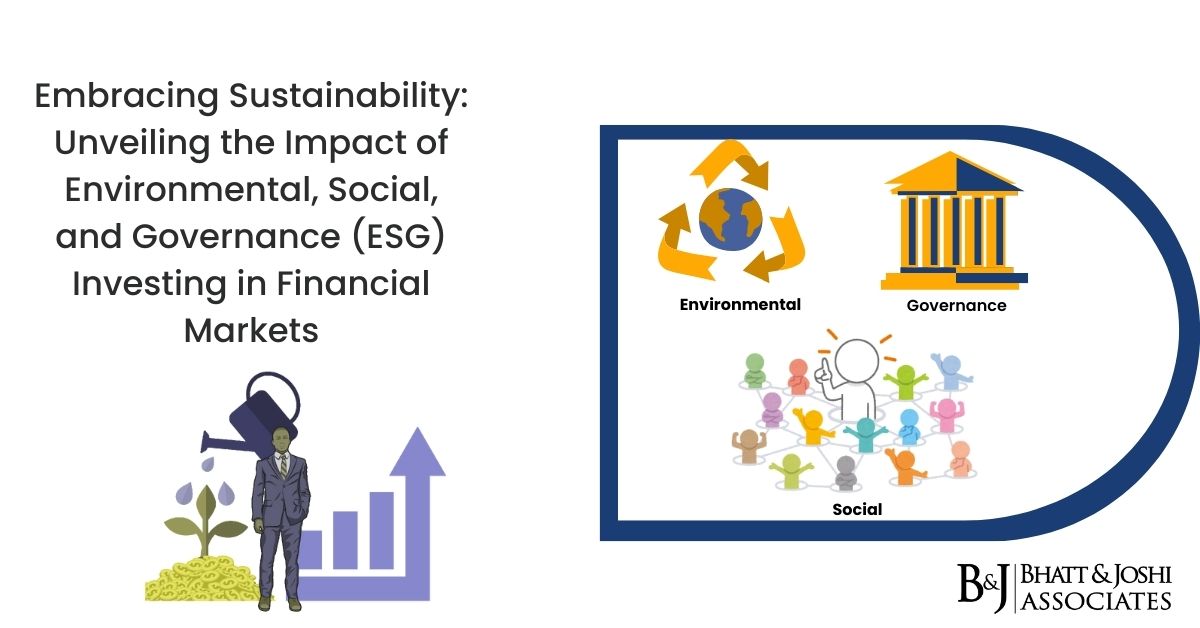Introduction: A Paradigm Shift towards Sustainable Investing
The realm of financial markets is witnessing a transformative shift with the rise of Environmental, Social, and Governance (ESG) investing, also known as sustainable investing. This approach represents a departure from conventional metrics, as investors increasingly prioritize sustainability alongside financial returns. By integrating ESG considerations into investment decisions, stakeholders are championing responsible business practices, mitigating risks, and capitalizing on emerging opportunities in sustainable industries. This article delves into the growth catalysts, significance, and strategies underpinning ESG investing, elucidating its profound impact on financial markets and beyond.
Unraveling the Growth Catalysts for ESG Investing
The ESG investing is propelled by multifaceted growth catalysts reshaping the financial landscape. Investor demand serves as a primary driver, fueled by heightened awareness of climate change and ESG-related risks. Investors are advocating for proactive measures to address these challenges, prompting companies to embrace sustainable practices. Moreover, the financial performance of ESG-focused investments has been notable, with studies showcasing their outperformance across various metrics. Policy support from governments worldwide further accelerates the momentum, fostering a conducive environment for sustainable investing to thrive. The tangible benefits of ESG integration underscore its potential to drive positive change and deliver superior financial returns.
Exploring the Significance of ESG Impact: Driving Positive Change
ESG investing emerges as a catalyst for positive change across diverse domains, heralding a transition towards a more sustainable future. Investments in clean energy and sustainable technologies underscore a collective commitment to environmental stewardship and innovation. Moreover, ESG initiatives play a pivotal role in reducing corporate greenhouse gas emissions, contributing to global efforts in mitigating climate change. By fostering corporate diversity and inclusion, ESG investing enhances organizational culture, employee well-being, and business success. The transformative impact of ESG extends beyond financial markets, reshaping the landscape of responsible investing for a more sustainable and equitable world.
Embracing ESG Investing: Strategies for Sustainable Investment Decisions
ESG investing encompasses a spectrum of strategies aimed at integrating Environmental, Social, and Governance factors into investment decisions. Negative screening involves excluding companies engaged in harmful activities, while positive screening identifies businesses with strong ESG practices. ESG index investing and exchange-traded funds (ETFs) track indices comprising companies with robust ESG performance. Green bonds fund environmentally friendly projects, while impact investing generates positive social or environmental impacts alongside financial returns. By adopting these strategies, investors align their portfolios with sustainability goals, contributing to a more environmentally friendly and socially responsible financial ecosystem.
Conclusion: A Paradigm Shift towards Sustainable Prosperity
Environmental, Social, and Governance investing heralds a significant transformation in financial markets, fostering sustainability, and driving positive change. Investors benefit from potentially higher financial returns while supporting sustainable businesses and societal well-being. Companies embracing ESG principles mitigate risks, enhance reputation, and attract top talent in an increasingly socially conscious market. At the societal level, ESG investments accelerate the transition towards a sustainable economy, driving positive change and resilience. This shift underscores the recognition that sustainable investing is not only morally imperative but also financially rewarding, paving the way for a more inclusive and prosperous global economy. ESG investing marks a watershed moment, shaping a future characterized by responsible, sustainable, and profitable investment practices.














